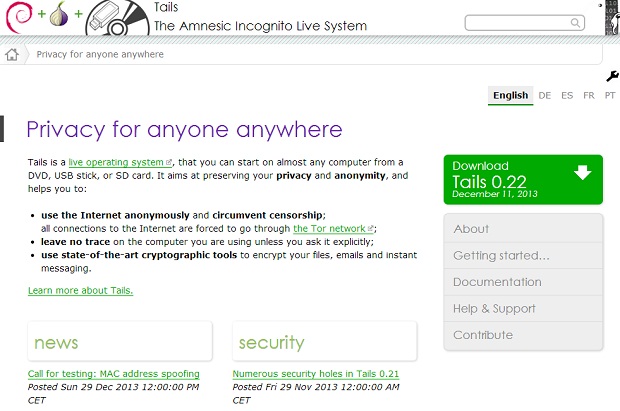31 Mar 2014 | Digital Freedom, News and features, United States

(Illustration: Shutterstock)
Reforms can be a deceptive thing. They can be particularly deceptive when covering the intelligence community, which is notoriously resistant to legislative meddling it tends to find intrusive.
Last week, Congress and the White House were a flurry with proposals to alter the nature of bulk collecting of calls and communications of American citizens under the Patriot Act. In a statement released through the American Civil Liberties Union, Snowden went so far as to see this as “turning point”. “I believed that if the NSA’s unconstitutional mass surveillance of Americans was known, it would not survive the scrutiny of the courts, the Congress, and the people.”
Three plans are on the table – the USA Freedom Act (otherwise known as the Leahy-Sensenbrenner bill), the more conservative House Intelligence Committee Bill (the Ruppersberger-Rogers bill), and the President’s own proposal. The latter has yet to mutate into the language of legislation, but is by the far the most important one to date. For that reason, it deserves greatest scrutiny.
All the proposals, in some measure, deal with the operation of Section 215 of the Patriot Act. The provision facilitates current bulk collection and remains a creature of the post-September 11 2001 era, when the Bush administration extended the surveillance state with knee-jerk enthusiasm. Defenders of the provision argue that metadata gathered under the program remains vital in identifying links between terrorist cells inside the United States. Privacy advocates remain unconvinced by the inefficiency of a program that has been affirmed.
President Obama’s proposal involves allowing phone companies to retain their databases of records in standardised, interoperable format. The reason behind this is to allow government officials quick and easy access to the material when required. The focus on storage will shift from government agencies – a main bone of contention for privacy advocates – to telephony companies. There is an additional oversight measure – the NSA would, in obtaining access, have to seek an order from the Foreign Intelligence Surveillance Court. In turn, the FISC would have to be satisfied that the records pertained to a person connected with a terrorist organisation.
The enthusiasm for the changes last week was certainly evident, suggesting the administration had struck a delicate balance between privacy and security. In Obama’s own words, “I am confident that this approach can provide our intelligence and law enforcement professionals the information that they need to keep us safe while addressing the legitimate privacy concerns that have been raised.”
Reuters stated that the Obama administration had “announced details of its plan to end the government’s vast bulk collection of data about phone calls made in the United States”. Even more cautious observers, such as Jameel Jafeer, suggested that this was “an acknowledgment that a program that was endorsed in secret by all three branches of government, and that was in place for about a decade, has not survived public scrutiny.”
For all that enthusiasm, Jafeer would also suggest that various operational matters needed clearing up. What would, for instance, be the governing standard of suspicion the FISC would use in its judicial deliberations? There is every suggestion that the reforms are driving down the standard of suspicion required in various cases – from “probable cause” to “reasonable suspicion”. For that reason, it would be difficult to see refusals to government petitions except on rare occasions. The FISC will continue being a formalised rubber stamp.
A looming question here is what constitutes a “phone record” for the purposes of Obama’s reforms. Phone records obtained by national security letter statutes and the pen register would need to be incorporated into the reforms – to not do so would render any changes futile..
There is a striking addition to the NSA’s powers that will take place if Obama’s current proposals go through in their current form. The NSA would only be losing authority to collect and hold telephone calling records for up to five years from landlines. Telephony companies will be expected to hold records for up to 18 months. More than adequate compensation is being offered to the NSA’s apparent trimming of data access. The compromise has come in the form of collecting cell phone data, a considerable expansion of power given that the NSA claims that only 30 per cent of all call data of the country is being tapped into.
This in itself is a curious suggestion, given that the NSA is already gathering up to 5 billion records a day on the location of cell phones around the globe. Presumably, local coverage in the US of cell phone data has been skimpy, at least relative to land lines.
It should come as little surprise that the agency’s chief, the retiring Gen. Keith Alexander, was enthusiastic for a solution that would, in effect, enhance NSA coverage while having metadata from landlines restricted. His lobbying of Congress has been particularly frenetic, given that the collection authority of the agency will expire in 18 months. The drafters have been busy, and Obama has been dismissive of suggestions by such NSA critics as Democratic Senate Judiciary Committee Chairman Patrick Leahy to let the program lapse into oblivion. In that, the President has the support of the House Intelligence Committee members, Republican Mike Rogers and Democrat Dutch Ruppersberger, whose “End Bulk Collection Act” replicates the spirit of Obama’s proposals.
For that reason, privacy advocates can only count the latest measures, notably those of the Obama administration, as refined efforts to enhance surveillance rather than roll back metadata collection. The principle remains only the practice is being tweaked and effectively granted a legal varnish.
25 Mar 2014 | Digital Freedom, Events

(Image: Shutterstock)
Index on Censorship, in association with Doughty Street Chambers, invites you to attend our high-level panel discussion asking who runs the internet?
At a moment when the revelations on NSA and GCHQ mass surveillance are opening up a wide debate about our digital freedoms, our panel will discuss how free the net is today, and the main challenges that lie ahead. In the next couple of years, major international summits will debate new rules on internet governance, and whether to adopt a top-down approach as favoured by China and Russia, or maintain a more open, multistakeholder networked approach. Meanwhile, from the EU to Brazil, reactions to the Snowden’s revelations of mass snooping suggest there is a growing risk of fragmentation of the internet, with calls for forced local hosting of data.
We are delighted to be hosting speakers:
Bill Echikson – Head of Free Expression EMEA, Google
Richard Allan – Head of Europe, Middle East and Africa, Facebook
Tusha Mittal – formerly a correspondent for Tehelka and currently a Fellow at the Reuters Institute, Oxford University
Kirsty Hughes – CEO, Index on Censorship
The panel will make short introductory remarks ensuring plenty of time for a lively Q&A session.
The event will be held at Doughty Street Chambers (53-54 Doughty St, London WC1N 2LS) on Wednesday 2nd April 6-7.30pm, followed by a drinks reception. To RSVP please fill in your details here. If you have any questions please contact Fiona Bradley ([email protected]).
19 Mar 2014 | Awards, Digital Freedom, News and features, United States
In 2013, National Security Agency contractor Edward Snowden leaked thousands of documents detailing US government surveillance to the press, igniting a global debate on the ways authorities can watch citizens’ communications.
Snowden was one of tens of thousands of people who had access to data collected by the NSA.
The revelations detailed the extent of the PRISM programme, which allows NSA agents and contractors to view any user’s metadata based on a number of search terms. This warrantless surveillance is seen as a breach of the US’s fourth amendment, which guarantees the right to privacy.
Snowden also revealed details of the UK’s TEMPORA programme, which intercepts data carried on fibre optic cables to allow agents to monitor communication, again without a warrant.
After leaking 58,000 files, he fled from his home in Hawaii to Hong Kong, and from there to Moscow, where he found himself stranded after the US government revoked his passport.
Snowden’s revelations have shown the lack of scrutiny and oversight intelligence agencies face. Equally worrying has been the willingness of the UK government to try to intimidate the Guardian, with veiled threats of prosecution after it published a mere fraction of the information contained in the leaked files.
As a whistleblower, Snowden has in fact helped make the world more secure by highlighting the potential abuse of monitoring capabilities and there have been calls to grant him asylum in the European Union. Above all else, he has got the world talking about what privacy and free expression mean in an age when surveillance has never been easier.
Nominees: Advocacy | Arts | Digital Activism | Journalism
Join us 20 March 2014 at the Barbican Centre for the Freedom of Expression Awards
This article was posted on 19 March 2014 at indexoncensorship.org
17 Mar 2014 | Awards, Digital Freedom, News and features

The Incognoto Amnesiac Live Operating System (TAILS) is an open-source encryption tool that can help protect the free online communication of journalists and sources in any country, regardless of official limits on free expression.
Tails was developed by a global network of individuals, working in international obscurity, united in their dedication to protecting the security of computer users. This is a vital service to journalists and activists working in the NSA era and closed societies, where authorities rely heavily on censorship and tracking of online activity to clamp down on dissent.
Tails is an operating system, much like Windows and Mac OS, and can be used by anyone, anywhere, without having to have substantial technical knowledge. A member of the anonymous group behind the creation of Tails spoke with Alice Kirkland about their nomination and why online security is not just a requirement for journalists and hackers.
Index: How does it feel to be nominated for the Index on Censorship digital activism award and why do you think Tails was nominated?
Tails: It is an honour to be on the list of nominees. Especially after all that happened this year! We find it interesting to see a free software project in such a list. I think Tails was nominated because we are the safest operating system available for online anonymity and digital activists. This was even acknowledged by the NSA itself.
Index: What is the importance of internet security and how has this changed over recent months?
Tails: The fact is that in our modern world our communications are inevitably more and more mediated by digital technologies. On the other hand, the characteristics of digital communications as well as the way the internet is built create a very interesting challenge: it is relatively easy to spy on people on the internet, but it is also relatively easy to defeat this spying by using the right techniques.
I don’t think that the nature or the role of internet security changed over the recent months. The recent Snowden revelations only confirm the assumptions on which our work is based. What really changed is the public awareness regarding those issues. It is now hard to deny that internet security has to do with politics and not only with technology.
Index: Do you think journalists should have access to different online security options than the general public?
Tails: I don’t think so. We all need efficient tools to protect our communications online whether you are a journalist, an activist, a hacker, or a layperson. Recent events, from the Snowden revelations to the Arab Spring, proved that the boundaries between those roles are actually being challenged by the way people use the internet.
Furthermore, from a more technical point of view, anonymity tools like Tor need a wide range of users in order to protect the anonymity of every one of them. Tor is being used equally by dissident bloggers, privacy concerned citizens, whistleblowers, businesses, victims of intimate partner abuse, and even military and law enforcement agencies.
Anonymity loves company.
Index: What was the thought process behind Tails and how has the software evolved over time?
Tails: The first version of Tails announced on our website dates back from June 23, 2009. Our vision was to create a toolbox for computer security that would be easy to use and hard to misuse. The challenge was to combine very good security by default while being accessible to a large public.
Since then, we released 34 versions of Tails and we have been really successful. In 2013, our approximate number of users was multiplied by 2.5. Today, someone is starting Tails every 10 seconds somewhere in the world.
Just to give an example, all connections to the internet are forced to go through the Tor network without having to configure anything. I think that we share the same target audience as the people who are using the Tor network.
The main function of tails is to hide the location of internet users.
Index: What other features does Tails have for its users?
Tails: For us online anonymity is only one of the major aspects of Tails:
– Online anonymity. All connections to the Internet are forced to go through Tor or I2P, which is the second anonymity network available in Tails.
– Amnesia. Tails runs from a DVD or USB stick and by default leaves no trace on the computer that you are using. This allows you to use Tails almost anywhere and also prevents you from leaving traces of sensitive data on computers.
– Cryptography toolbox. Tails provides a selection of state-of-the-art cryptographic tools to encrypt your files, emails and instant messaging, selected for their security features and ease of use.
Index: What role does freedom of expression have to play in the debate surrounding online privacy and where do you see the future of this?
Tails: Tools such as Tails or Tor relate to both online privacy (private communications), and freedom of expression (opinions expressed publicly). For example, Tails can be vital to both an activist writing a dissident blog, and a victim of intimate partner abuse communicating with her lawyer. In this case, the actual technology used to protect both freedom of expression and privacy on the internet is the same.
Still, the recent leaks proved that freedom of expression is a central mechanism in bringing those issues to the public debate and making clear they are political issues, and not merely technical issues.
Index: Online privacy and the NSA received a lot of media coverage over the past year. Would Tails have come about if it wasn’t for the likes of WikiLeaks & Edward Snowden?
Tails: As our record of releases proves, Tails existed before the NSA leaks, and even before the major WikiLeaks releases in 2010. I think that in this recent history, the tools and the way they are being used have a symbiotic relationship. Recent whistleblowers probably used online security tools such as Tor and Tails. In turn, the consequent media coverage and public interest provides us with a social context that is positive for the further development of our tools.
Nominees: Advocacy | Arts | Digital Activism | Journalism
Join us 20 March 2014 at the Barbican Centre for the Freedom of Expression Awards
This article was posted on March 17, 2014 at indexoncensorship.org



